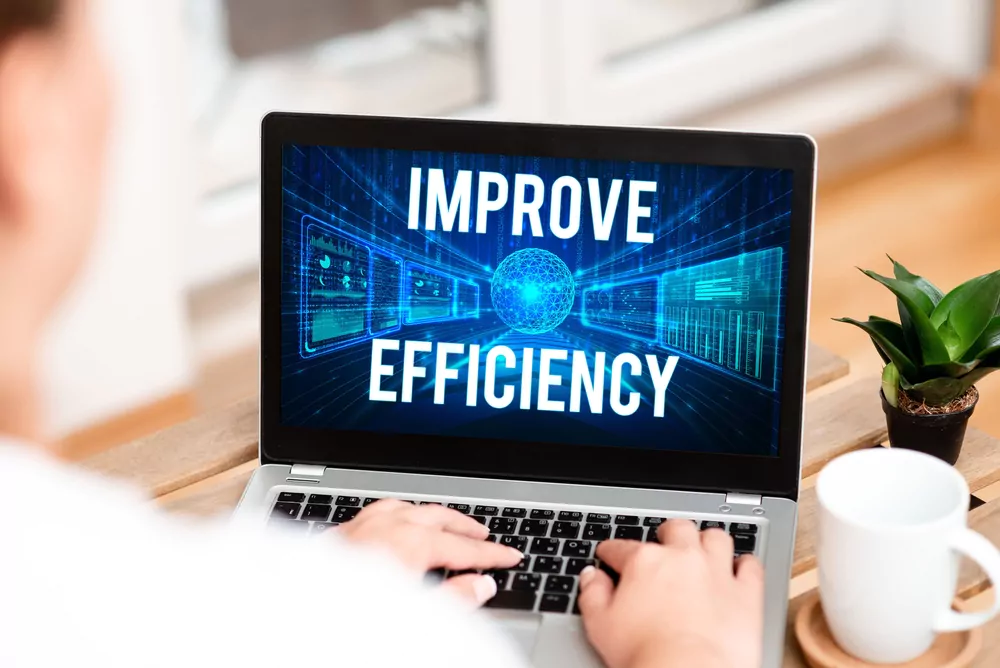How to Make Laptop Fast? Tips and Tricks

The speed and efficiency of your laptop are crucial for a smooth computing experience. No one enjoys waiting for applications to load, enduring lagging performance, or dealing with slow start-ups. Fortunately, there are several ways to optimise your laptop’s performance and make it faster than ever. In this comprehensive guide, we’ll explore various tips, tricks, and techniques on how to make laptop fast that can help you improve the speed and responsiveness of your laptop.
1 Effective and Proven Ways to Make Laptop Fast
Hardware Upgrades
One of the most effective ways to boost your laptop’s performance is by upgrading its hardware components. Three key upgrades can significantly impact your laptop’s speed: RAM, SSD, and Graphics Card.
RAM
Random Access Memory (RAM) is your laptop’s short-term memory, storing data for quick access by the processor. If your laptop doesn’t have enough RAM, it will struggle to run multiple applications simultaneously, causing slowdowns and crashes. Upgrading your RAM is a relatively simple and cost-effective way to boost your laptop’s performance.
For most users, 8 GB of RAM is sufficient, but if you’re a heavy multitasker or run resource-intensive applications like video editing software or games, upgrading to 16 GB or more is highly recommended.
SSD
Replacing your laptop’s traditional hard disk drive (HDD) with a solid-state drive (SSD) can significantly improve its speed. SSDs have no moving parts, which means faster read and write speeds, quicker boot times, and reduced power consumption.
Most modern laptops come with an SSD, but if your laptop is still using an HDD, upgrading to an SSD is one of the best investments you can make. You can also opt for a hybrid setup, using an SSD for the operating system and frequently used programs while retaining the HDD for additional storage.
Graphics Card
If you use your laptop for gaming, video editing, or other graphics-intensive tasks, upgrading your graphics card can have a significant impact on performance. Dedicated graphics cards are usually more powerful than integrated ones and can handle more demanding tasks with ease. Keep in mind that not all laptops allow for graphics card upgrades, so it’s essential to check your laptop’s compatibility before investing in a new card.
Software Optimization
Optimising your laptop’s software is another crucial step in making it faster. Here are some tips to help you get started.
Operating System Updates
Always ensure that your operating system is up-to-date. Updates often include performance improvements, bug fixes, and security patches that can enhance your laptop’s speed and overall functionality.
Uninstalling Unnecessary Applications
Over time, laptops can accumulate numerous unnecessary applications that consume valuable resources. Uninstall any programs you no longer need or use, freeing up storage space and improving overall performance.
Cleaning Temporary Files
Windows and other applications often create temporary files that can accumulate and slow down your laptop. Use a utility like CCleaner or Disk Cleanup to regularly delete these files and keep your laptop running smoothly.
Optimise Startup Programs
Some applications automatically start when your laptop boots up, consuming valuable system resources and increasing start up times. To optimise your start up programs, open the Task Manager (Ctrl + Shift + Esc) in Windows, navigate to the ‘Startup‘ tab, and disable any unnecessary programs from starting automatically.
Adjusting Power Settings
Power settings can also impact your laptop’s performance. In Windows, go to ‘Power & sleep settings‘ and select ‘Additional power settings.’ Choose the ‘High performance‘ power plan to ensure that your laptop’s processor and other components are running at their full potential. Be aware that this may increase power consumption and decrease battery life, so it’s best to use this setting when your laptop is plugged in.
Security and Maintenance
Maintaining your laptop’s security and performing regular maintenance is essential for keeping it fast and efficient.
Antivirus and Anti-Malware
Install a reliable antivirus and anti-malware program to protect your laptop from threats that can slow it down or compromise its performance. Run regular scans to detect and remove any malware, and keep your antivirus software up-to-date to ensure maximum protection.
Regular System Scans
In addition to antivirus scans, perform regular system scans using tools like Windows Defender or third-party utilities to check for and fix any issues with your laptop’s software and hardware.
Keep Drivers Up-to-Date
Drivers are software components that enable your laptop’s hardware to communicate with its operating system. Keeping drivers up-to-date ensures optimal performance and compatibility. You can update drivers manually using Device Manager in Windows or use dedicated driver update software.
Regular Disk Defragmentation and Optimization
Over time, your laptop’s storage can become fragmented, which can slow down its performance. Regularly defragment and optimise your laptop’s storage using built-in tools like Windows’ Disk Defragmenter or third-party utilities like Defraggler.
Miscellaneous Tips
Here are some additional tips to help you make your laptop faster:
Browser Extensions
Web browsers can be resource hogs, especially when loaded with numerous extensions and add-ons. Review your browser extensions and remove any that are unnecessary or not frequently used.
Visual Effects
Disabling some visual effects can improve your laptop’s performance, particularly on older or lower-spec systems. In Windows, go to ‘System Properties,’ click on the ‘Advanced‘ tab, and select ‘Settings‘ under the ‘Performance‘ section. Choose ‘Adjust for best performance‘ or manually disable specific visual effects to optimise your laptop’s speed.
Cooling Solutions
Overheating can cause your laptop’s performance to suffer. Ensure that your laptop’s cooling system is clean and functioning correctly. Use a laptop cooling pad or an external fan to keep your laptop’s temperature in check.
2 Wrapping Up
By following these tips, tricks, and techniques, you can significantly improve your laptop’s speed and performance. Remember that regular maintenance and timely upgrades are essential to keeping your laptop running smoothly and efficiently. Don’t hesitate to invest in hardware upgrades, optimise your software, and maintain your laptop’s security to enjoy a faster, more responsive computing experience.
Community Q&A
About This Article
This article has been viewed 504 times.



